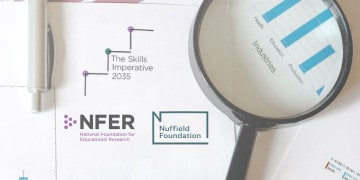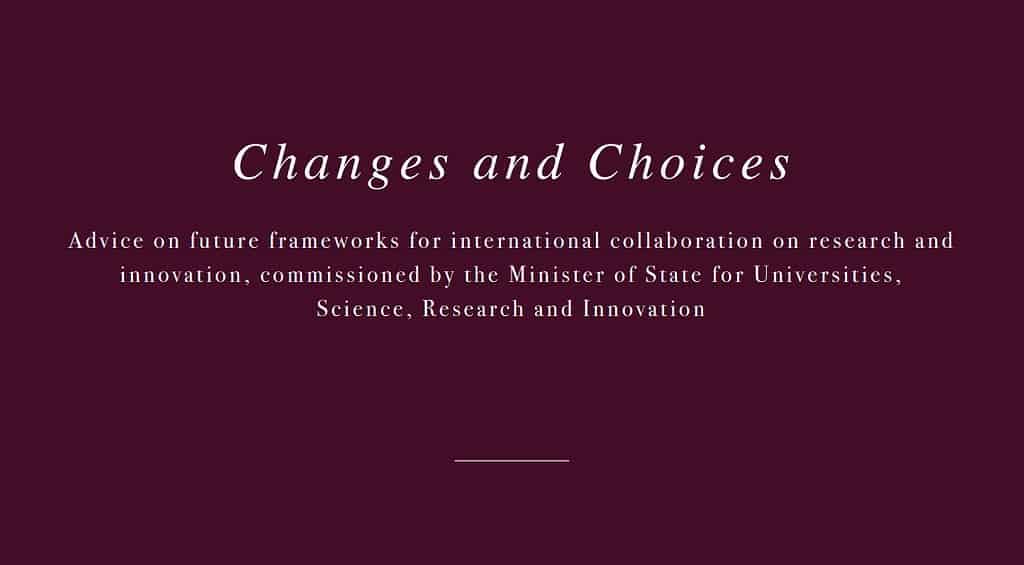Gordon Doig and Paul Stuart, members of the Learned Societies’ Group on Scottish STEM Education (LSG), reflect on this year’s Scottish exam results.
STEM Performance in Scottish Exam Results
10 Aug 2017
The Scottish examination results released this week (8 August) by the Scottish Qualifications Authority have shown no significant change in entries and pass rates, compared with 2016. Across all subjects the number of entries for National 5 fell slightly by 0.6%, Higher by 1.5% and rose marginally for Advanced Higher by 1.3%.
If we consider the Higher entries, Biology, Chemistry, Mathematics and Physics were all fairly stable compared with 2016, however in 2016 there had been a considerable drop in entries compared with 2015, so the number of students studying these subject to Higher is still below the level that was achieved prior to the replacement of Standard Grades with National 4 and National 5 qualifications. Part of the drop in Biology can be explained with a substantial increase in Human Biology being taken at Higher, though the combined number of entries was still well down compared with 2015.
Almost certainly this will be due to the effect of students at S4 being limited to 5 or 6 course options with National 4 & 5, compared with often 8 choices with Standard Grade. As English and Mathematics are generally taken by most students in S4, this has had the result that other subjects have lower uptake in S4, thus restricting the choices of Highers available, as few students seek to take a Higher in a subject in S5 without first having studied and passed a National 5. Most of the STEM subjects were affected by this, as were a number of non-STEM subjects. Interestingly and perhaps of most concern is that Mathematics dropped by over 10% in 2016, and has just stood still this year.
Ultimately this will mean that fewer students are likely to have taken 2 or 3 science Highers, which will restrict their course choices if they wish to apply for Higher Education.
While there has been a decline in the total number of S5 and S6 students between the 2015 and 2017 examination diets of just under 5%, Biology & Human Biology (combined figure), Chemistry, Physics and Mathematics experienced reduced presentations for Higher by between 6.9% and 10.5%.
Computing Science and Engineering Science, from lower bases, both experienced an increase which differed from the trend across the other STEM subjects.
Another issue of concern is that several of the sciences experienced a decrease in entries of around 5% at National 5 in 2017 (Chemistry 5.8%, Computing Science 6.1%, Engineering Science 4.8% and Physics 4.9%). These figures may well result in a decline in presentations for Highers in these subjects in 2018.
The 2017 results for Advanced Higher show that both the entries and pass rates are more volatile, this may not be surprising given the lower number of candidates. Expectedly for most subjects the change in entries reflects the trend of the change in entries at Higher level the previous year, with Mathematics bucking this trend with fewer Higher candidates in 2016 but more Advanced Higher candidates in 2017. Overall pass rates remain similar to 2016 however, both Biology and Engineering Science experienced significant drop in the pass rate, with a decrease of 6% and 24% respectively. Notably, Computing Science, Engineering Science and Mathematics experienced an increase in entries in 2017 as the other STEM subjects experienced decreases.
There were no statistics issued this week to indicate whether the attainment gap between students from the most affluent and poorest backgrounds has reduced and we should consider carrying out research on this with particular consideration of the STEM subjects. Gender data will not be available until late September.
Overall it remains a concern that the number of school students in Scotland studying the sciences has declined since the examination system was changed. We need to recognise and understand the reasons for this and address them as a matter of urgency.
Related articles

The Physiological Society’s policy team on the health challenges facing older workers and the urgent need to develop a strategy to ensure older people are happy and healthy at work.

Jo Reynolds, Director of Science and Communities at the Royal Society of Chemistry, on the RSC’s new summary report looking to unlock the potential of deep tech SMEs.

Lisa Morrison Coulthard, Research Director at the National Foundation for Education Research, on the Nuffield Foundation funded five year research programme providing insights into the essential employment skills needed for the future workforce

Sir Adrian Smith, Institute Director and Chief Executive of The Alan Turing Institute, and Graeme Reid, Professor of Science and Research Policy at UCL, set out the findings from their new independent report on international partnership opportunities for UK research and innovation